How do you teach nutrition to elementary students? Hint: you don’t! Yes – I am a registered dietitian nutritionist (RDN), nutrition educator and mom, and I do NOT teach young kids about nutrition (i.e., protein, carbohydrates, fat, vitamins, minerals, healthy/unhealthy). Then what on earth do I teach?
Shift the focus from nutrition to learning about food
Instead, I teach kids (and adults!) how to trust their bodies to love all different kinds of foods. Because at the end of the day, our goal is to raise competent eaters who are able to respect their own bodies and other bodies, as well.
Everyone has different tastes and preferences – and that’s okay. That’s what learning to like new food is all about!
-Marissa Beck, MS, RDN
When we start with the goal of trying to help kids to learn to love new food – and that everyone has different tastes and preferences – this allows both students and educators to be creative and curious!
What would it be like to learn about this new food?
Will it feel scary to some? (Yes!)
Will it feel exciting to others? (Also yes!)
Temperaments are different in each family and classroom. Some kids will be slow to warm up to something new, whereas others will plunge right in.
When we teach about food, all learning styles are welcome.
Developmental learning processes related to food
It is super fun to teach kids about food and where it comes from. Did you know that a review (PMID: 28790935) identified four developmental learning processes related to food preferences in children? They are as follows:
- Familiarization: Children learn about different foods through repeated exposure to their taste, texture, or appearance – especially younger children.
- Observational Learning: Imitating other kids’ eating behavior is important in the early years of life.
- Associative Learning: Children learn to like foods, such as vegetables with bitter tastes, through associative processes like pairing new foods with familiar flavors.
- Categorization: Kids are more likely to consume foods they recognize as familiar examples of a certain food type. As an example, they might like pears because they look similar to apples.
Lesson plan for nutrition in elementary school
What can you teach your amazing elementary children and students? These lesson ideas for nutrition to elementary students work starting as young as Kindergarten, and can be shared by parents and educators, alike:
1. Don’t Yuck My Yum
- DON’T YUCK MY YUM: this concept is really important for all ages, not only to be respectful of others’ personal preferences, but also to continue to be open minded about trying new foods. I love starting off with the children’s book, “The Sandwich Swap,” which is an adorable story about how two best friends get into an argument about their favorite sandwiches, breaks into a schoolwide food fight (kids love this part), and it ends in everyone learning to accept and love each others’ foods – and differences.
2. Use Your Senses
- USE YOUR SENSES: feel free to snag this free download as an example of a worksheet you can use in the classroom. Encourage your child and students to use their many senses to explore the texture and flavor of the food. What does it look like? Smell? Taste? Feel like? And – can you hear it??? Maybe if you shake it!?
3. Try Food Prep and/or Demo
- FOOD PREP/DEMO: if possible, invite your child/students in simple cooking or food preparation activities. This can be as basic as making a fruit salad or assembling a sandwich. It helps them understand where food comes from and how to prepare it. And it breaks down the walls of unfamiliarity.
4. Use Visual Aids
- USE VISUAL AIDS: if your classroom has a projector, have kids sit on the rug to share books, posters, diagrams and charts to aid in learning so that one sense (auditory) is not the only learning format. This style will help all types of learners.
5. Create Hands-on Activities
- CREATE HANDS-ON ACTIVITIES: engage students in groups or as individuals to observe what they notice when they are trying new foods or cooking with them. I simply love calling kids, “Food Scientists” or “Food Explorers” so that they are free to look at themselves as someone who gets to learn and discover. Taste testing is an excellent hands-on experience, as well as (age-appropriate) myth/fact busting together in small groups.
6. Group Discussion
At the end, bring your kiddos together to encourage sharing ideas about what they learned. Here are some questions you can ask:
- What are the things you enjoyed today?
- What are the things you did not enjoy?
- What were the different aromas you experienced?
- Who can share what flavors they observed?
- Anyone feel like this was NOT their day to try a new food? (totally ok!)
- Did you know that you can have a taste for something in a few months that you might not have liked today?
- Who likes something now that they did not like a year ago?
- What are some foods you want to learn about in the future?
- Next time, we will do a vote!
Free Download!
Did you miss it above? I want to share my free download that can help you develop your next lesson for nutrition to elementary students, and even as a parent as you help your student “worksheet their way through” different tastes and textures. You can substitute “chickpeas” for any food! Access it here or click through the image below.
Keep It Fun
Above all else, let’s keep nutrition fun. Songs, games, laughter… It might be stressful to eat and when we break down those shackles and invite kids to engage with food in a no pressure environment, kids will feel more likely to feel calm and comfortable about eating and enjoy the experience.
Do you want additional help?
I help professionals, parents and individuals educate themselves and their children about nutrition without diet culture. Feel free to visit my contact page to get started with a free introductory call.

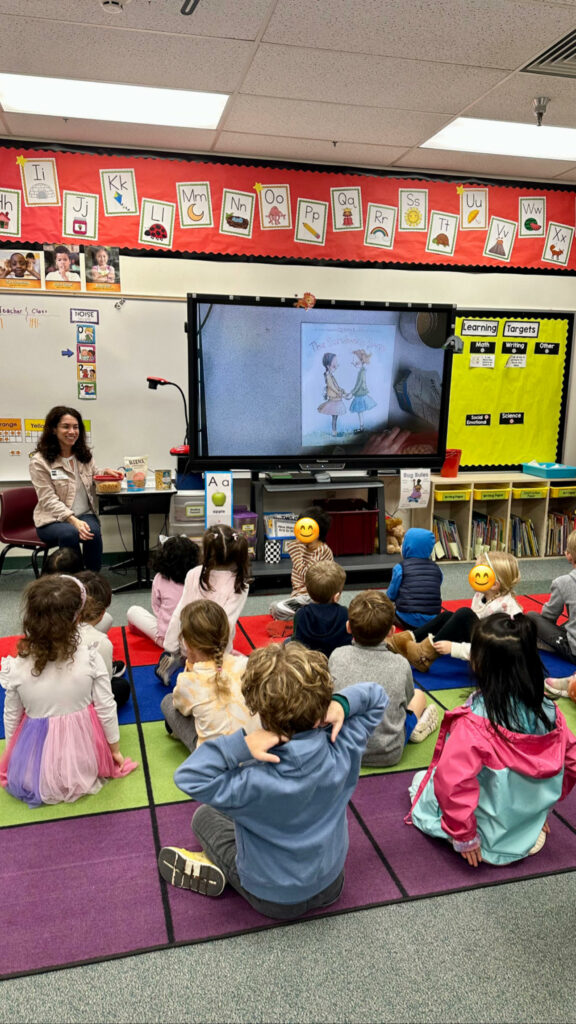
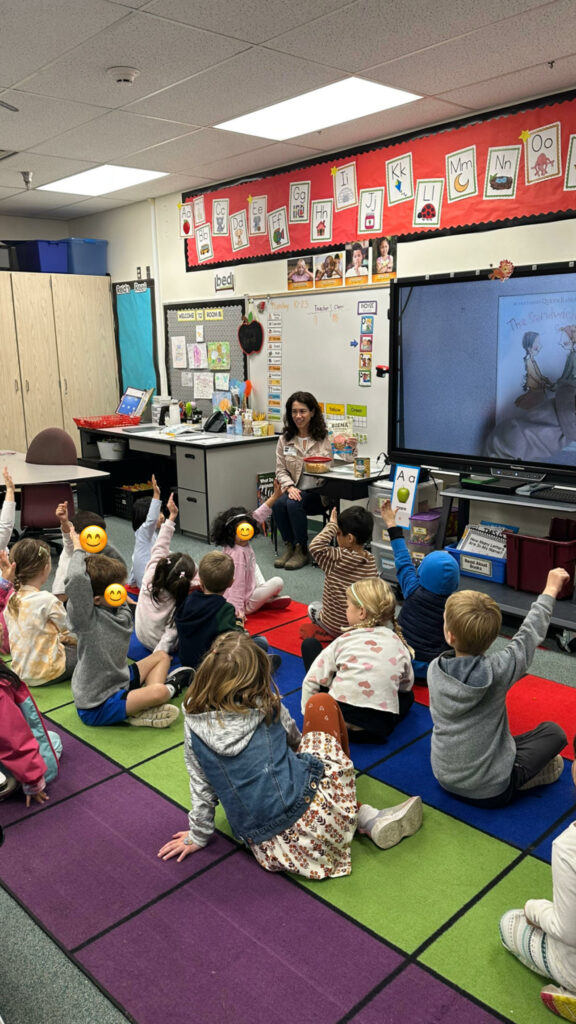
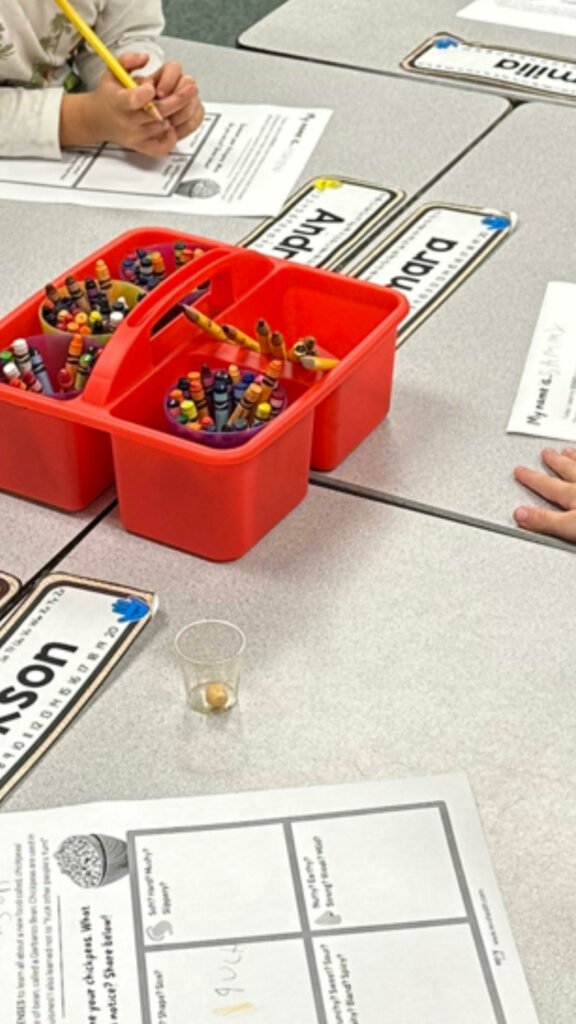
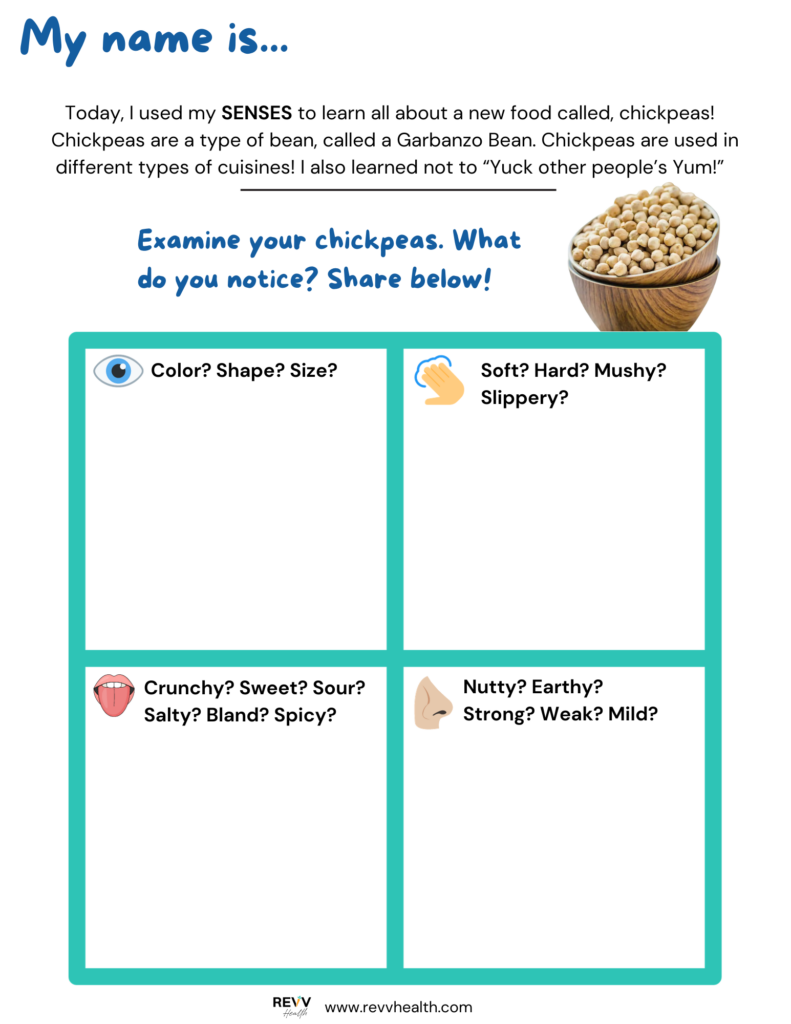
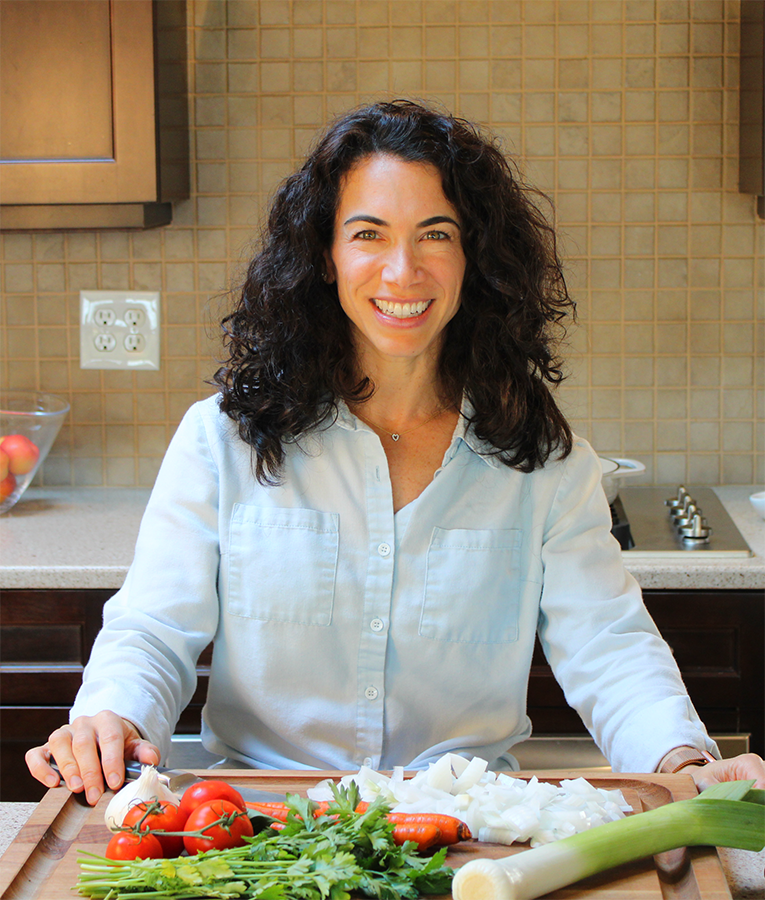
0 Comments